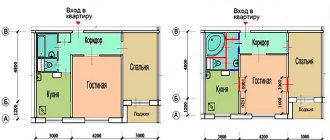Deadline in practice
Very rarely does anyone manage to carry out privatization from start to finish in the required two months; these people can rightly be called lucky, because the majority spend three and sometimes four months on the same procedure. Provided that the case does not go to court (in this case, the deadlines will drag on for at least another 60 calendar days).
The duration of privatization is affected by:
- Speed of consideration of citizens' appeals by government officials. In cities of federal significance, structures work more harmoniously, so decisions are made much faster.
- The territorial distance between all family members registered in the apartment being re-registered. The privatization agreement must contain the signatures of all participants, so their simultaneous presence in the administration of the locality at the location of the property, and then in Rosreestr, is mandatory.
- Registrar workload. The more citizens apply to government offices to carry out registration actions in relation to real estate, the longer it takes to consider and process each specific application.
- Debt on utility bills. The sooner the bills are paid, the sooner you can proceed with home ownership. In some cases, citizens manage to privatize apartments with debts, but only with the appropriate court order in hand.
- Additional checks and examinations ordered from the BTI.
Advantages and disadvantages of privatization
Before directly engaging in housing privatization, every Russian should decide why he needs it.
Advantages of privatization:
- No payment under a social rental agreement. This is a kind of rent that each resident of a non-privatized apartment pays to the local budget. The fee depends on the size and location of the property. It fluctuates between 2-2.5 rubles per square meter.
- Freedom in property management. It can be sold or legally rented out, which is impossible under social rent conditions.
- The owner of the apartment cannot be evicted legally. Even if he won't pay for utilities for many years. The only possible option is to sell the home in court to recover losses. But this practice is very rare in Russia.
- Simplified registration procedure. The owner of the property, at his discretion, can include or sign out any people. During social renting, you can only move members of your own family into an apartment. And even then with the permission of all residents.
Before deciding to privatize a home in 2020, people want to know about the pros and cons of this procedure. The advantages are immediately obvious - a person receives full rights to his property and can dispose of it as he sees fit. That is, the house can be sold, exchanged, donated or inherited. And until the housing is privatized, all this cannot be done.
Also, the advantages of carrying out the procedure include the fact that, by law, it is almost impossible to evict the owner from the apartment, even if, for example, he has a large debt on utility bills. There is, of course, a last resort. The home can be sold to recover losses, but this happens extremely rarely.
Another advantage is that a person can, at will and without restrictions, register people in his apartment and discharge them from there. But those who live on state property can only move in with family members. In addition, for registration you will need to obtain the consent of everyone who already lives in the apartment.
There are also disadvantages to privatization. For example, the size of utility bills will increase and a property tax will appear. Some may also be upset that there will be no opportunity to improve their home at the expense of the state, and they will have to pay for everything themselves. There is another drawback - the complex procedure for inheriting property. If the owner dies and does not leave a will, then all the heirs will be able to claim the apartment, and they will have to negotiate among themselves.
Having weighed the advantages and disadvantages, a person can decide for himself what will be more profitable and convenient for him. The majority in 2020 still decide to privatize their property in order to obtain full rights to it.
Pros of privatization
Home owners have the right to dispose of it as they wish: sell, exchange, donate, pledge, and so on. Anyone can be registered in a privatized apartment. In a non-privatized apartment, registering persons who are not closely related is only possible after obtaining permission from the owner.
Now about the cons:
- The owners take care of the property themselves. You will have to spend money on current repairs and major ones. Until housing is privatized, this concern lies with the state.
- loss of the right to improve living conditions. If the housing is in social hiring, the employer can claim improved conditions. And the owners have to take care of improving their homes themselves;
- Payment of property tax for individuals will be added to expenses.
In addition, you will have to spend energy going to authorities and collecting documents in order to carry out privatization.
Experience shows that privatization does not always go smoothly. Refusal to register housing as property is often due to the fact that the special status of official housing has not been lost - Appeal ruling of the Stavropol Regional Court dated March 30, 2016, case No. 33-2023/2016. The plaintiff received housing under a social contract.
- Do you think it is possible to obtain rights to housing issued by the organization at the place of work?
At first glance, it seems not. But we will give an example when the court made a different decision and recognized the right to privatization of an employee who received housing from a private company - the Appeal ruling of the court of the Yamalo-Nenets Autonomous District dated March 24, 2016, case No. 33-439/2016.
The crux of the matter. The plaintiff was provided with an apartment at his place of work under a commercial lease agreement. According to the order, he handed over the housing in which the plaintiff previously lived with his family for further distribution. The plaintiff wanted to register ownership of the apartment that was provided to him at his place of work, but was refused. Justification for refusal: housing that belongs to a private company cannot be privatized. But the court thought differently.
We invite you to read: Property deduction from the employer in 2020: how to get an income tax refund
Court position
- The plaintiff registered in the new apartment and rented out the old apartment provided by the administration. Previously, he was not involved in privatization. Other family members refused to register home ownership rights in his favor.
- Taking into account the above, housing was provided on the same terms as the old housing. Moving to a new apartment is an improvement in living conditions, which a tenant has the right to apply for under a social contract. hiring
- In this case, registration of housing rights cannot be blamed on citizens. There is no reason to refuse privatization.
There is no desire to independently collect documents and go through the authorities? Entrust privatization to professionals. Lawyers from the website “33 Yurista.ru” will represent your interests in government agencies, help you carry out privatization without unnecessary worries and collect the necessary documents.
What do the deadlines depend on?
It is almost impossible to calculate all the nuances in advance. In each specific case, the registration period can be shortened or increased, but there is still a chance to try to predict events and avoid some problems in advance.
Most often, deadlines are extended for the following reasons:
- Incorrectly completed documents. The name of the certificate was mixed up, the stamp was poorly affixed or the stamp was missing altogether, the scan of the document turned out blurry and unreadable. All this can cause a refusal to privatize, so carefully check each document before submitting it for consideration, this way you will be able to significantly reduce the time it takes to complete the procedure.
- Long lines. Despite the fact that the provision on free privatization of housing in Russia was introduced back in 1991, many municipal apartments still remain in the ownership of municipalities, and the queues of people wishing to privatize them are not decreasing, but on the contrary, they are getting longer and longer every year . As a result, registrars (especially in the regions) do not always have time to cope with the influx of people.
- No-show of participants. There are cases when persons registered in an apartment, having moved for permanent residence to another city, decide not to check out of their old housing. The situation is complicated by the fact that privatization is possible only with the personal presence of all residents or their proxies. Therefore, to carry out the procedure, you need to bring together all family members to sign an agreement with the local administration or ask an absent relative to issue a notarized power of attorney for the tenant or another loved one whom the nominal tenant trusts 100%.
Sale of a privatized apartment
To carry out the privatization of residential premises, you need to go through the standard registration stages:
- collect a package of documents that are necessary for inspection by the property committee;
- draw up technical documentation for the privatized apartment;
- apply for the transfer of ownership of the apartment;
- register your rights with Rossreestr;
The entire procedure for registering privatization according to the law should not take more than two months (clause 1 of Article 8 of the Law). But in reality, most often the procedure is delayed for a longer period. This may occur not so much due to the artificial delay in the consideration of documents by authorized bodies, but rather due to the length of time it takes for the applicants themselves to collect all the necessary papers.
After all, for privatization it is necessary to collect not only documents relating to future property, but there is a need to confirm that the applicant has not exercised this right earlier. This means that to confirm this fact, requests must be made to all places of the applicant’s previous residence (if the housing has changed several times).
We suggest that you familiarize yourself with: Statute of limitations for entering into inheritance after death according to law and will
The applicant’s desire to speed up the procedure for privatizing an apartment is most often due to the desire to sell it as soon as possible by selling it on the real estate market or passing it on by inheritance.
The possibility of significantly shortening the period of housing privatization exists at any stage of this process. In most cases, this directly depends on whether the citizen himself is collecting documents or has entrusted this matter to a specialist by issuing a power of attorney for him. Since the personal participation of the applicant, due to systematic lack of time, can significantly delay the privatization process.
To speed up the collection of required documentation, it is better to trust qualified specialists, which will help to significantly save not only time and nerves, but also financial resources. You can also significantly reduce the collection of necessary documents by means of an electronic request through the Rossreestr website, whose responsibilities include systematizing information on all real estate transactions.
Also, the authorized bodies themselves can help speed up the procedure for reviewing and verifying documentation, if this is provided for by their regulations.
Property rights arise immediately after registration of the privatization agreement with the Federal Registration Authority (clause 3 of Article 7 of the Law)
Stage 1
Deadline in case of refusal
Even if you have all the certificates and documents in your hands, and you are sure that no problems should arise, the registrars may refuse privatization and further re-registration will drag on for an indefinite period, until you eliminate all specified by government agencies shortcomings.
The grounds for refusal of privatization may include:
- disagreement of one of the employer's family members;
- repeated participation of one of the participants in privatization (if the person first participated in privatization as a minor, upon turning 18 he has the right to another similar procedure);
- the property being registered is recognized as unsafe and is subject to demolition;
- illegal redevelopment was identified;
- the housing is not municipal or is located in a closed military camp.
If you do not agree with the registrars’ claims, you can apply for restoration of your violated rights to the district court at the location of the re-registered living space. Be prepared that the terms of privatization will automatically increase by at least two months, and maybe longer, everything will depend on the complexity of the case and additional factors.
How long will it take to collect documents?
Collecting documents is one of the important stages, which also takes a lot of time:
- if the passport is expired and a replacement is necessary, privatization will be postponed for a maximum of 10 more days;
- registration of notarial waivers and powers of attorney occurs on the day of application;
- preparation of a registration certificate for an apartment is carried out by BTI employees 7-10 days from the day following the submission of the relevant application;
- the issuance of an extract from the house/apartment register is carried out by the migration authority or housing department also 7-10 days after the request;
- an extract from the personal account is prepared within 5 working days;
- It will take up to 5 days to receive certificate No. 2 about non-participation in privatization;
- if minor children are involved in privatization, it is necessary to additionally obtain permission from the guardianship and trusteeship authority, and this is another 14 days.
To reduce the time spent collecting documents, try to apply for important certificates and permits at the same time. It will take you no more than 2 days to go through all the departments, provided that there are no long queues, but after two weeks the required papers will be collected and you can begin re-registration.






